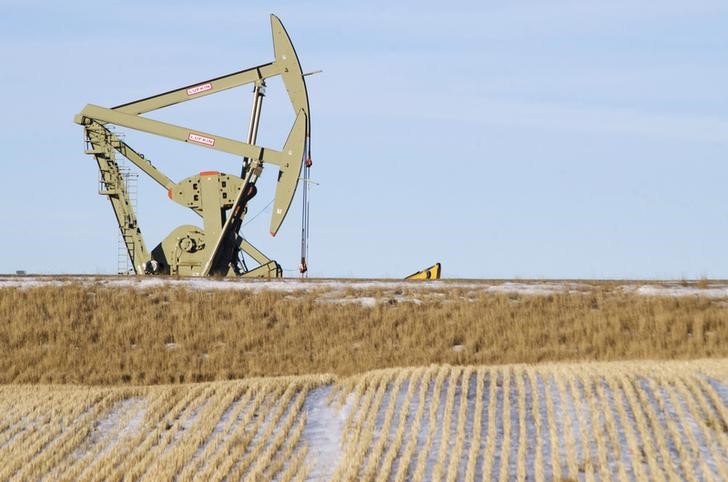By Katya Golubkova and Andrew Hayley
TOKYO/BEIJING (Reuters) -Oil prices fell on Tuesday amid concerns that fuel demand will be crimped by major central banks holding interest rates higher for longer, even with supply expected to be tight.
futures were down 38 cents at $92.91 a barrel at 0400 GMT, while U.S. West Texas Intermediate crude futures were trading 34 cents lower at $89.34.
“Fears of an economic recession may again dominate the oil market’s movement due to surging US bond yields following the Fed’s hawkish stance last week,” said Tina Teng, a market analyst at CMC Markets (LON:) in Auckland.
The world’s top economic policy makers, the U.S. Federal Reserve and the European Central Bank, have over recent days reiterated their commitment to fight inflation, signalling tight policy may persist longer than previously anticipated. Higher interest rates slow economic growth, which curbs oil demand.
Separately on Monday, rating agency Moody’s (NYSE:) said that a U.S. government shutdown would harm the country’s credit, a warning coming one month after Fitch downgraded the U.S. by one notch on the back of a debt ceiling crisis.
China’s property woes have also weighed on sentiment, CMC’s Teng added, with China Evergrande (HK:)’s announcement on Monday evening that it had missed a bond coupon payment driving renewed investor pessimism on the sector.
While supply remains tight as Russia and Saudi Arabia have extended production cuts to the end of the year, Moscow on Monday eased its temporary ban on gasoline and diesel exports, issued separately to stabilise the domestic market.
With China’s Golden Week holiday starting from Sunday, oil prices could gain support from a pick-up in travel and resulting oil product demand from the world’s second biggest oil consumer.
Oil prices have risen by around 30% since mid-year driven mostly by tighter supply, wiping off 0.5 percentage points from the global GDP growth in the second half of this year, according to JP Morgan.
But the shock “is not large enough to threaten the expansion by itself”, JP Morgan added in a note.
“We forecast $94/bbl through the 4Q23 period which is the maximum steepness of the curve we see before OPEC likely eases its supply constraints,” said Baden Moore, head of carbon and commodity strategy at National Australia Bank (OTC:).
Read the full article here



